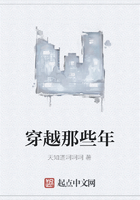Thus, for Hegel, all that has happened and is still happening is only just what is happening in his own mind. Thus the philosophy of history is nothing but the history of philosophy, of his own philosophy. There is no longer a "history according to the order in time", there is only "the sequence of ideas in the understanding". He thinks he is constructing the world by the movement of thought, whereas he is merely reconstructing systematically and classifying by the absolute method of thoughts which are in the minds of all.
Second Observation Economic categories are only the theoretical expressions, the abstractions of the social relations of production, M. Proudhon, holding this upside down like a true philosopher, sees in actual relations nothing but the incarnation of the principles, of these categories, which were slumbering -- so M. Proudhon the philosopher tells us -- in the bosom of the "impersonal reason of humanity".
M. Proudhon the economists understands very well that men make cloth, linen, or silk materials in definite relations of production. But what he has not understood is that these definite social relations are just as much produced by men as linen, flax, etc. Social relations are closely bound up with productive forces. In acquiring new productive forces men change their mode of production; and in changing their mode of production, in changing the way of earning their living, they change all their social relations. The hand-mill gives you society with the feudal lord; the steam-mill society with the industrial capitalist.
The same men who establish their social relations in conformity with the material productivity, produce also principles, ideas, and categories, in conformity with their social relations.
Thus the ideas, these categories, are as little eternal as the relations they express. They are historical and transitory products.
There is a continual movement of growth in productive forces, of destruction in social relations, of formation in ideas; the only immutable thing is the abstraction of movement -- mors immortalis .
[Ed: Marx quotes these words from the following passage of Lucretius's poem On The Nature of Things (Book III, line 869): "mortalem vitam mars immortalis ademit" ("immoratl death hath taken away moral life").]
Third Observation The production relations of every society form a whole. M. Proudhon considers economic relations as so many social phases, engendering one another, resulting one from the other like the antithesis from the thesis, and realizing in their logical sequence the impersonal reason of humanity.
The only drawback to this method is that when he comes to examine a single one of these phases, M. Proudhon cannot explain it without having recourse to all the other relations of society; which relations, however, he has not yet made his dialectic movement engender. When, after that, M. Proudhon, be means of pure reason, proceeds to give birth to these other phases, he treats them as if they were new-born babes. He forgets that they are of the same age as the first.
Thus, to arrive at the constitution of value, which for him is the basis of all economic evolutions, he could not do without division of labor, competition, etc. Yet in the series, in the understand of M.
Proudhon, in the logical sequence, these relations did not exist.
In constructing the edifice of an ideological system by means of the categories of political economy, the limbs of the social system are dislocated. The different limbs of society are converted into so many separate societies, following one upon the other. How, indeed, could the single logical formula of movement, of sequence, of time, explain the structure of society, in which all relations coexist simultaneously and support one another?
Fourth Observation Let us see now to what modifications M. Proudhon subjects Hegel's dialectics when he applies it to political economy.
For him, M. Proudhon, every economic category has two sides --one good, the other bad. He looks upon these categories as the petty bourgeois looks upon the great men of history: Napoleon was a great man; he did a lot of good; he also did a lot of harm.
The good side and the bad side, the advantages and drawbacks, taken together form for M. Proudhon the contradiction in every economic category.
The problem to be solved: to keep the good side, while eliminating the bad.
Slavery is an economic category like any other. Thus it also has its two sides. let us leave alone the bad side and talk about the good side of slavery. Needlesstosay, we are dealing only with direct slavery, with Negro slavery in Surinam, in Brazil, in the Southern States of North America.
Direct slavery is just as much the pivot of bourgeois industry as machinery, credits, etc. Without slavery you have no cotton; without cotton you have no modern industry. It is slavery that gave the colonies their value; it is the colonies that created world trade, and it is world trade that is the precondition of large-scale industry. Thus slavery is an economic category of the greatest importance.
Without slavery North America, the most progressive of countries, would be transformed into a patriarchal country. Wipe North America off the map of the world, and you will have anarchy -- the complete decay of modern commerce and civilization. Cause slavery to disappear and you will have wiped America off the map of nations.














